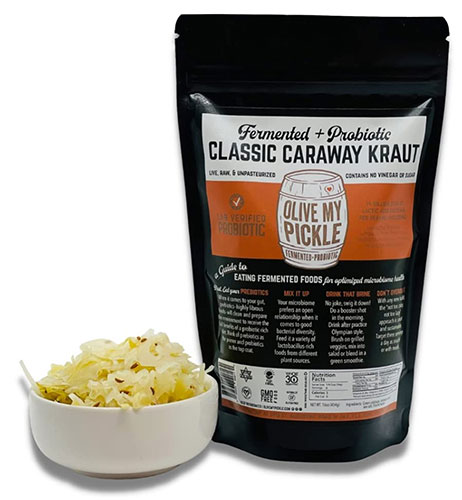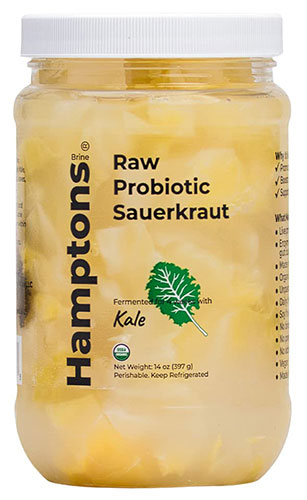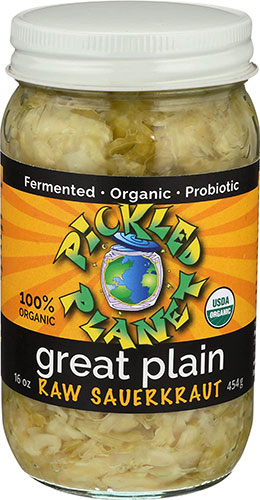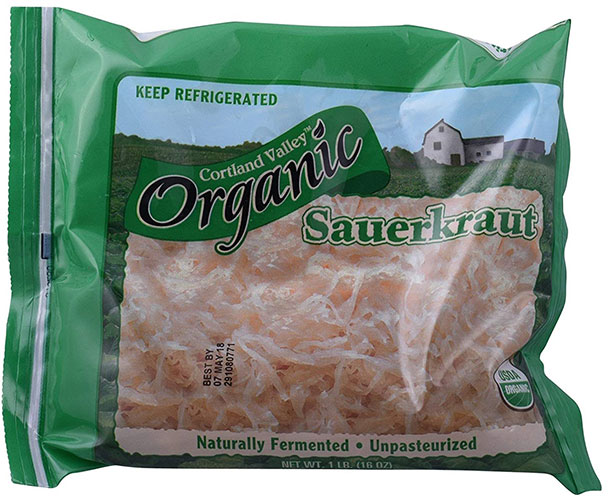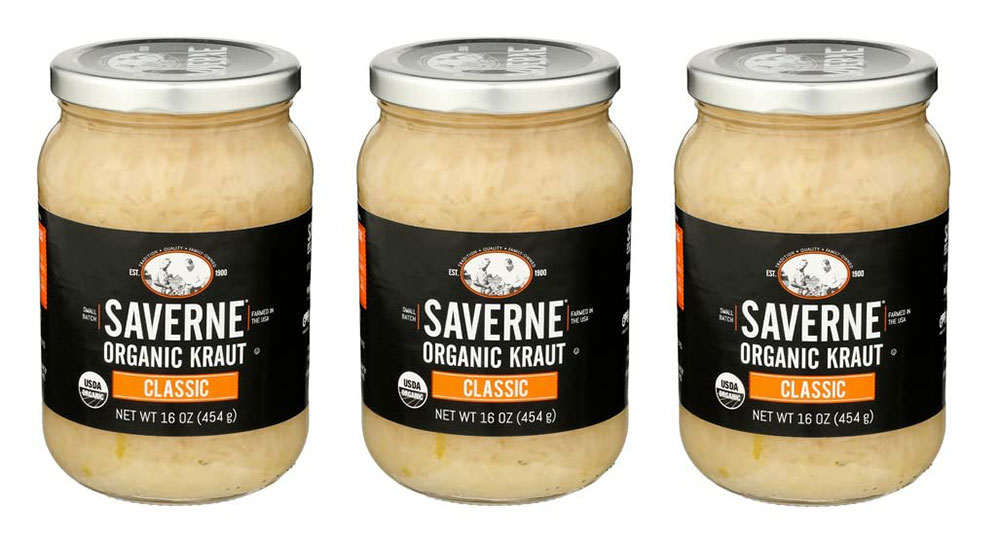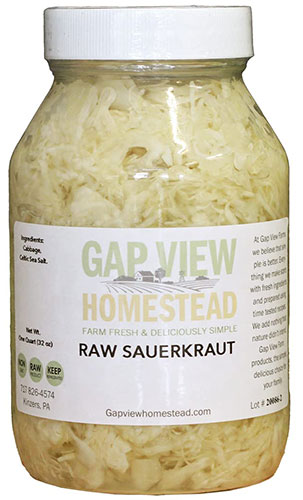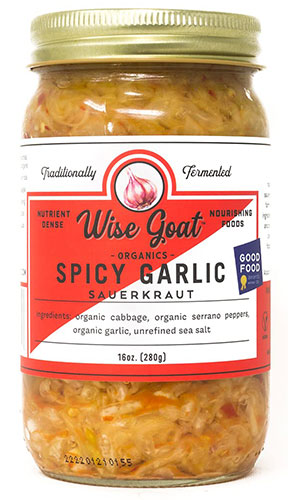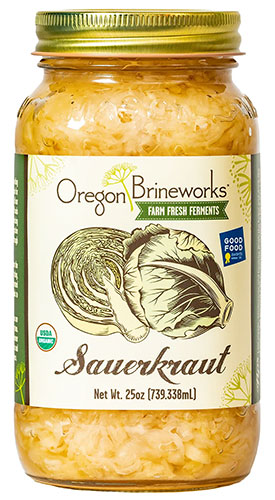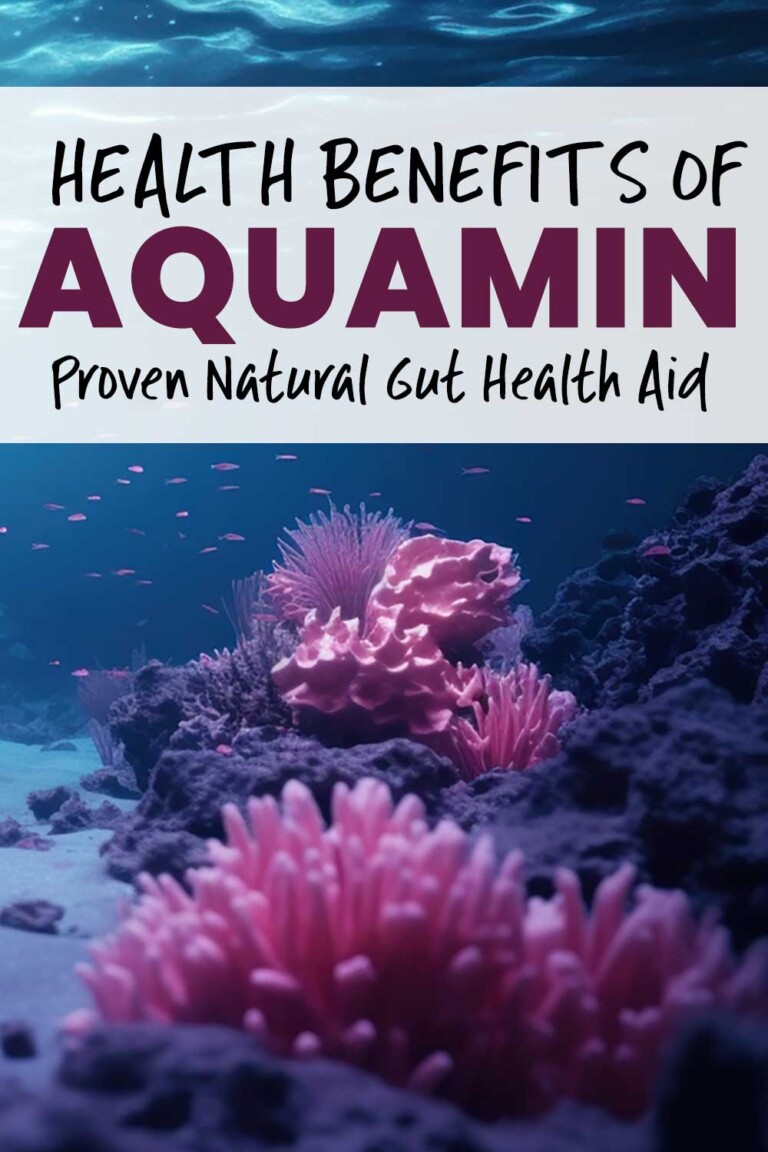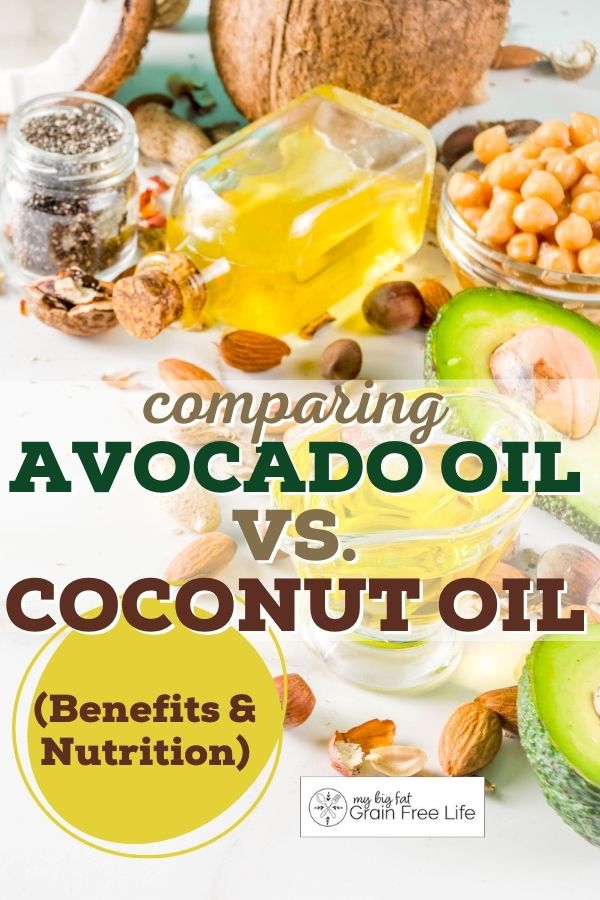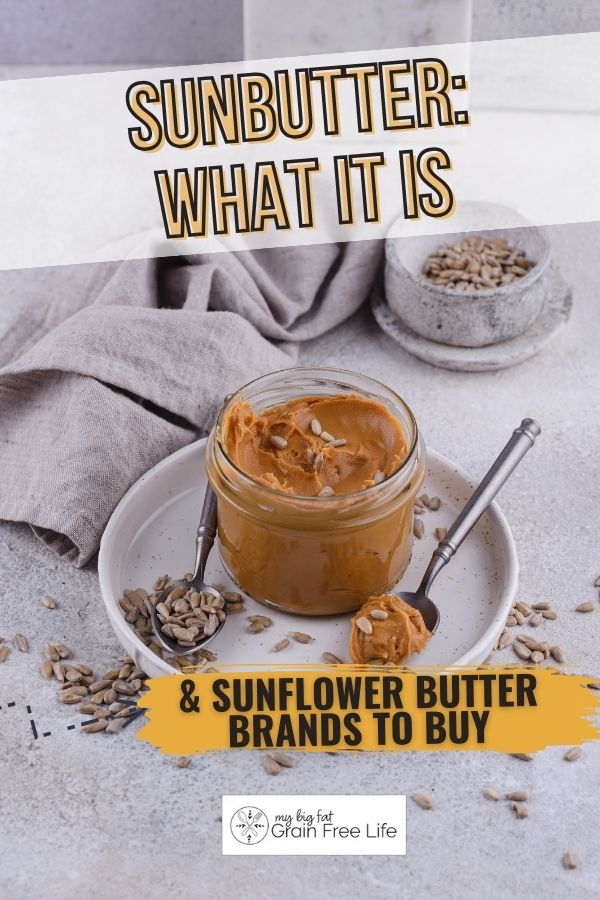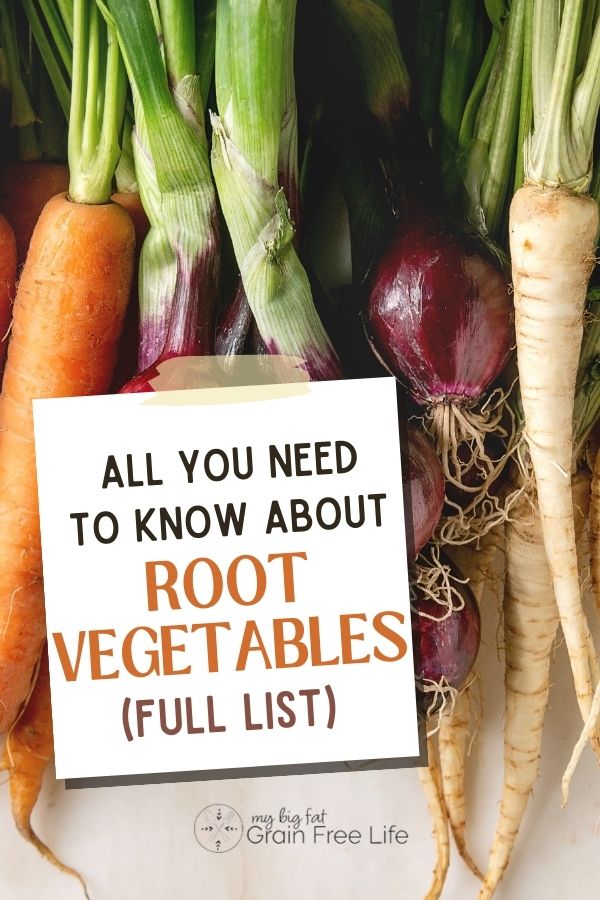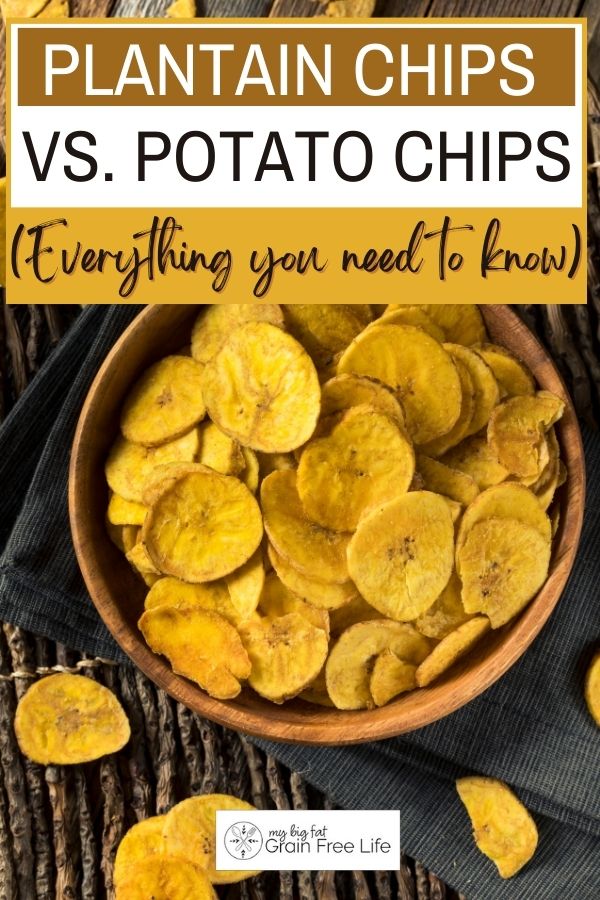The Best Sauerkraut Brands (Fermented Food for Gut Health)
This post may contain affiliate links. If you make purchase after clicking a link, I may receive a commission at no extra cost to you.
Last Updated on April 27, 2023
Sauerkraut has amazing health benefits. But, you have to know what to look for if you want to find good fermented sauerkraut brands. Not all sauerkraut is loaded with probiotics. So, let’s dive in and go over what a good, beneficial sauerkraut looks like. We’ll also share with you some of the best sauerkraut brands.
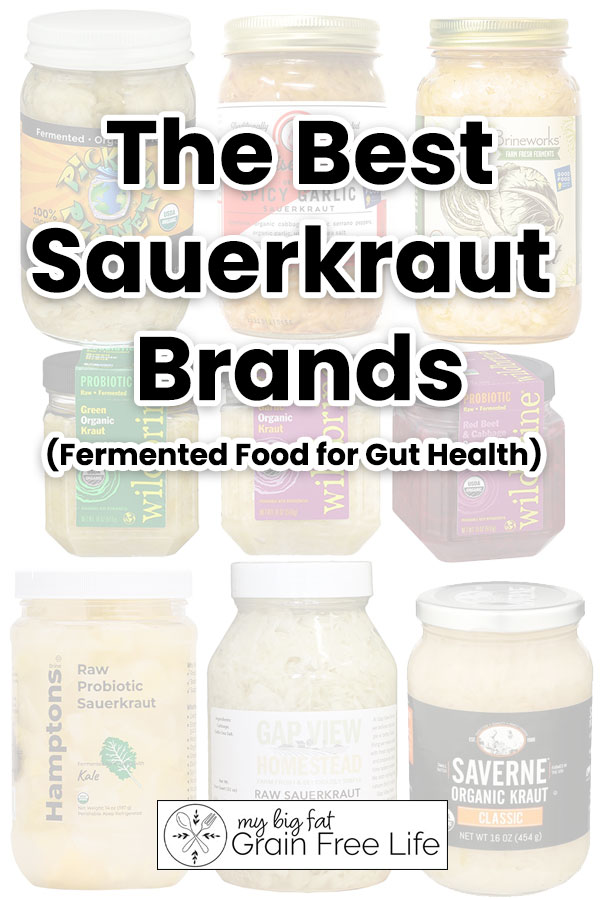
What is Sauerkraut?
To make sauerkrat, you start off with cabbage, found on the list of cruciferous vegetables. Sauerkraut is fermented cabbage, rich probiotics and digestive enzymes, and other beneficial microorganisms.
It’s sour, tart, tangy, and salty. Eating sauerkraut can help improve your overall gut health, but you need to choose a good fermented sauerkraut brand.
Sauerkraut is compliant with most diets, including but not limited to: AIP, Paleo, Keto, Primal, GAPS, SCD, Plant-Based, Vegan, Gluten-Free, and Whole 30. However, it is not a low FODMAP food.
Not only is sauerkraut amazingly good for your gut, but other foods like fermented garlic, kalamata olives, and coconut yogurt also provides a lot of health benefits. Some people even drink fermented kombucha for weight loss!
Not sure what brand of sauerkraut to buy? We’ve got you covered! We’ll share with you our favorite fermented sauerkraut brands. You can also make your own using easy sauerkraut recipes.
First, let’s learn more about sauerkraut and its health benefits.
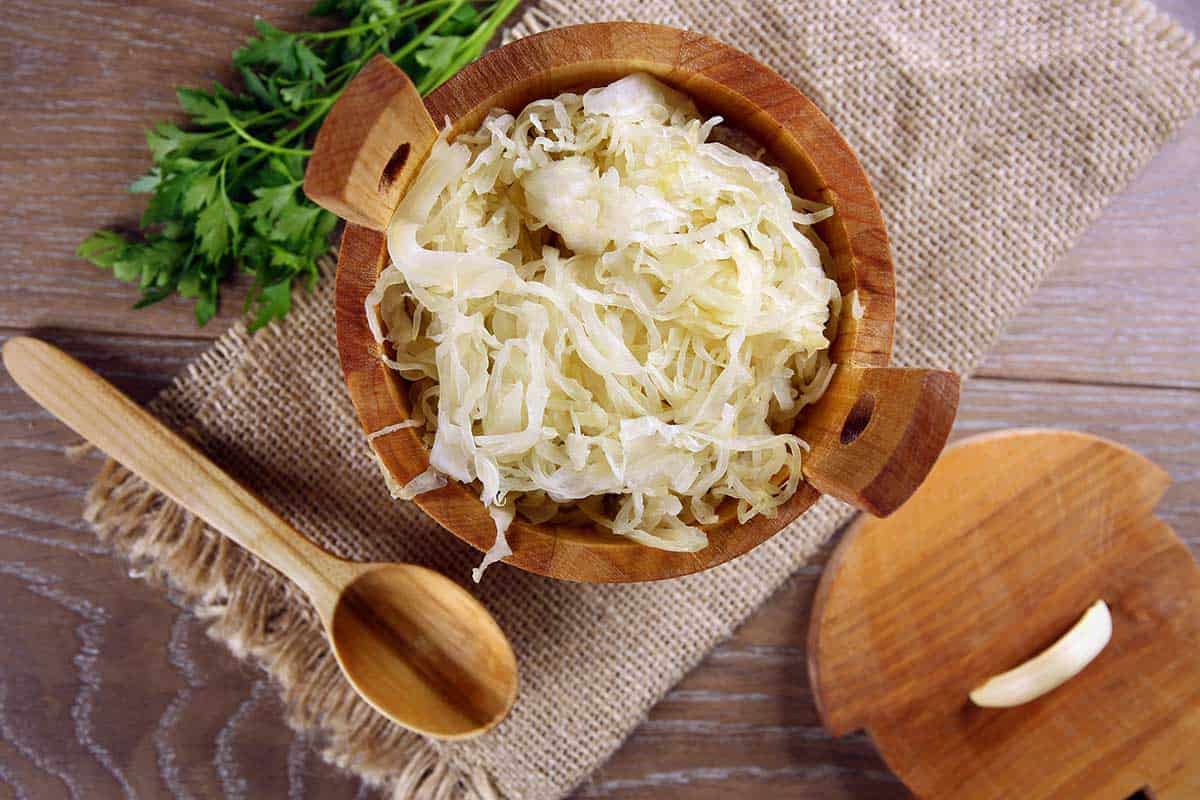
Is Sauerkraut a Probioitic Food?
Sauerkraut, when made in a way that preserves the live cultures, is a probiotic food. Probiotics are live microorganisms that can help improve or restore the gut microbiota.
You can find different brands of sauerkraut at the grocery store. Not all krauts are considered equal though!
When you are looking for a great sauerkraut loaded with probiotic health benefits, you want to make sure that the raw cabbage was fermented using traditional methods. To ensure that the active cultures stay intact, avoid shelf-stable sauerkrauts.
You can discover the best fermented sauerkraut brands below.
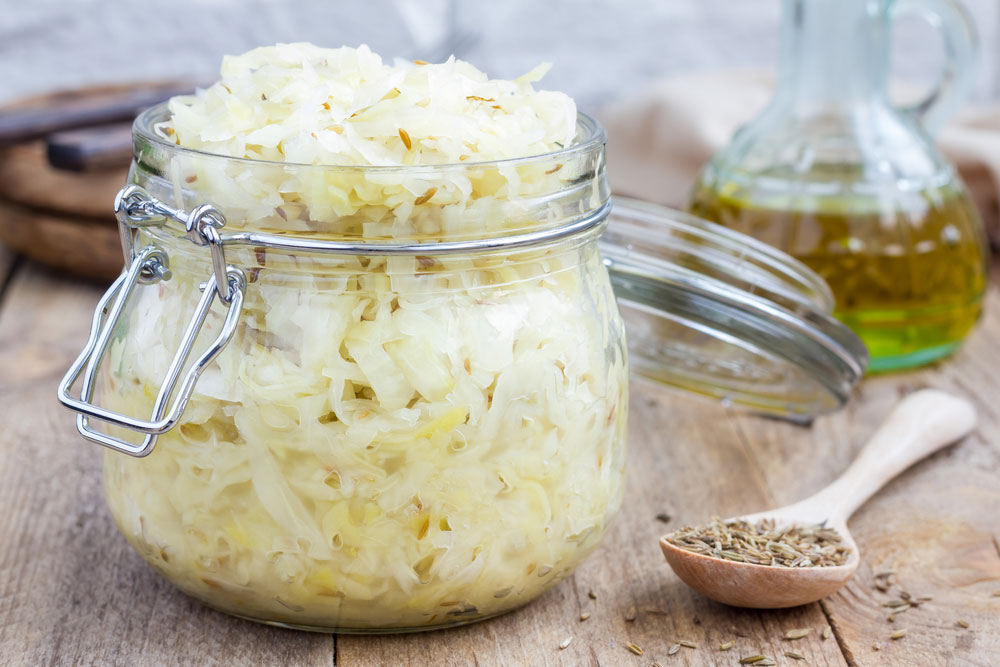
What Are the Benefits of Eating Sauerkraut?
Sauerkraut is a very nutritious food that’s loaded with prebiotics, probiotics and vitamin K2, along with many other nutrients and essential vitamins. It’s low in calories and high in fiber.
The fermented cabbage in sourkraut contains antioxidant and anti-inflammatory properties. There are a lot of health benefits of cabbage and other leafy green vegetables; add in the probiotics from fermentation and you have a superfood!
Eating sauerkraut may help balance your gut flora, build up your immune system, improve digestion, and support heart health. It’s also possible that sauerkraut can help anxiety and drepression and improve your mood.
Eating a variety of probiotic foods can also help reduce blood pressure and the risk of developing type 2 diabetes.

Does Store Bought Sauerkraut Have Probiotics?
The only store-bought sauerkraut that has beneficial probiotics will be found in the refrigerator section. But, not all refrigerated sauerkrauts are abundant with live cultures!
You need to carefully check the label to make sure that the sauerkraut you are considering is all-natural, raw, and unpasteurized. It should also be free of all types of vinegar or other additives.
Look for labels that say lacto-fermented or naturally fermented.
Sauerkraut found on the shelf in a can or a jar is void of the health benefits of sauerkraut.
Does All Sauerkraut Have Probiotics?
The only sauerkrauts that are loaded with enzymes and probiotics are those that are raw and unpasteurized. The heating process of pasturization kills all the beneficial bacteria and depletes the good digestive enzymes. You can learn how to make sauerkraut easily to ensure you have an abundant supply of probiotics without any additives.

How Are Fermented Foods Made?
During the fermentation process of any food or beverage, the microorganisms (yeast or bacteria) break down the food components into other products. This anaerobic process results in fermented foods that contain beneficial probiotics and digestive enzymes.
Fermenting sauerkraut takes about 3-6 weeks. The fermentation process is all done naturally. All you do is fill your glass jars with shredded and pounded cabbage, an unrefined type of salt, and other spices (if desired). Then you seal the jars and let them sit and create all the fermented goodness.
How Do You Pick a Good Sauerkraut?
When you are eating sauerkraut for the health benefits of live probiotics, it’s important to make sure you are buying the right stuff! Not all sauerkraut is good for you.
Some pasturized sauerkrauts have additives and other unhealthy ingredients, such as MSG.
When you are purchasing sauerkraut, look for lacto-fermented or naturally fermented, all-natural, raw, unpasturized, and free of vinegar, added sugars, and other additives.
Also, canned sauerkraut is not good if you are looking for live cultures. While there are a few brands in plastic containers found in the refigerated section that say raw and unfiltered, it’s always best to purchase sauerkraut in glass jars.
If you see a shelf-stable sauerkraut, it’s NOT raw. The pasterization process killed all the live cultures.
If you like tangy and sour foods, you will love my zucchini pasta salad!
Fermented Sauerkraut Brands
Searching for a high-quality sauerkraut? We’ve sourced the best sauerkraut with probiotics for you! These delicious and nutritious sauerkrauts will provide all the probiotic goodness that you want to feed your gut.
Olive My Pickle Classic Fermented Probiotic Sauerkraut
Olive My Pickle sauerkraut is a real fermented and probiotic sauerkraut good for gut health. It’s made with a salt water brine and void of vinegar, sugar or food dyes. It’s 100% plant-based, non-GMO and comes in a resealable pouch.
Olive My Pickle also sells carrot and dill kraut, red + ginger kraut, pickles, olives, and kimchi.
Ingredients: Green cabbage, caraway seeds, sea salt, filtered water.
Hamptons Kraut-N-Kale Sauerkraut
Hamptons (small woman-owned business) produces a natural wild, raw fermented organic kraut that is unpasteurised, probiotic-rich, dairy and gluten-free. They use a traditional Russian recipe made with 100% organic ingredients and highest quality salts.
Hamptons Kraut is made by hand in small batches and is cold-packed by hand.
Ingredients: Himalayan Salt, Kosher Salt, Filtered Water, Organic Bay Leaves, Organic Kale
They also have other “flavors”: Beets & Jalapenos, Carrots & Cabbage
Pickled Planet Organic Raw Sauerkraut With High Probiotic Content
This raw sauerkraut is all organic and made in small batches. It contains a high probiotic content and is made in Oregon.
Ingredients: Organic cabbage and himalayan salt
Cortland Valley Organic Sauerkraut Organic
Cortland Valley kraut is certified organic and never pasteurized. It has a full-bodied flavor and maintains the live cultures that provide the gut-friendly bacteria that is beneficial for your health.
Ingredients: Organic Cabbage, Water, Sea Salt, Lactic Acid
Saverne® Raw Kraut
Saverne Raw Kraut is made with non-GMO cabbage. There’s also a shelf-stable kraut from Saverne, but since it has been pasturized we recommend the raw one.
Ingredients: Organic Cabbage, Water, Salt, Lactic Acid
They also make an artisanal kraut made with the addition of craft beer, but it’s shelf-stable and contains preservatives, so avoid that one.
Gap View Homestead Raw Sauerkraut
This lacto-fermented 100% natural and raw fermented cabbage is nutrient dense and delicious. It’s homemade by a family farm in Pennsylvania.
Ingredients: Cabbage and Celtic Sea salt
Wise Goat Organics Raw Organic Fermented Probiotic Sauerkraut
This sauerkraut contains a spicy blend of cabbage, peppers, and garlic. The addition of nightshades makes it NOT AIP compliant.
All ingredients are organic and Wise Goats supports sustainable farming practices. Their raw kraut is never heated and produced using traditional fermentation to encourage diversity and quantity of bacterial probiotic cultures.
Their wild fermentation process uses handcut vegetables and they ferment in micro-batches.
Ingredients: Organic Cabbage, Organic Serrano Peppers, Organic Garlic, Unrefined Sea Salt
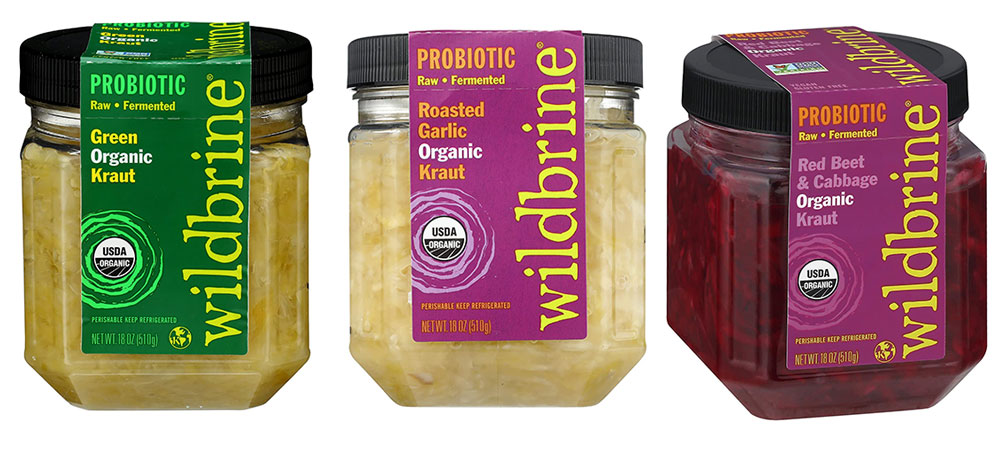
Wildbrine Kraut Raw
You can find Wildbrine Kraut in a few varieties in the grocer’s refrigerated section. This sauerkraut tastes great and is raw, but I don’t like that it’s in a plastic container.
Organic Roasted Garlic Kraut: Organic Cabbage, Organic Roasted Garlic, Sea Salt, Organic Roasted Garlic Powder
Raw Green: Green Cabbage, Sea Salt, Garlic
Red Beet and Red Cabbage: Red Cabbage, Red Beets, Pear, Sea Salt, Ginger, Cilantro, Garlic
Oregon Brineworks
Oregon Brineworks makes an incredible kraut with a great crunch! It’s made in small batches and is raw and has a high probiotic content.
This company also makes pickles, pickled beets, beet apple kraut, spicy kraut, kvass, and other fermented products. Their products are on the pricier side (sold in cases), so be prepared to have your jaw drop!
Ingredients: Organic Green Cabbage, Himalayan Pink Sea Salt
So, those are the best brands of sauerkraut with beneficial live probiotic culture. But, there are other sauerkrauts you might be familiar with that ARE NOT full of the live cultures that provide the health benefits.
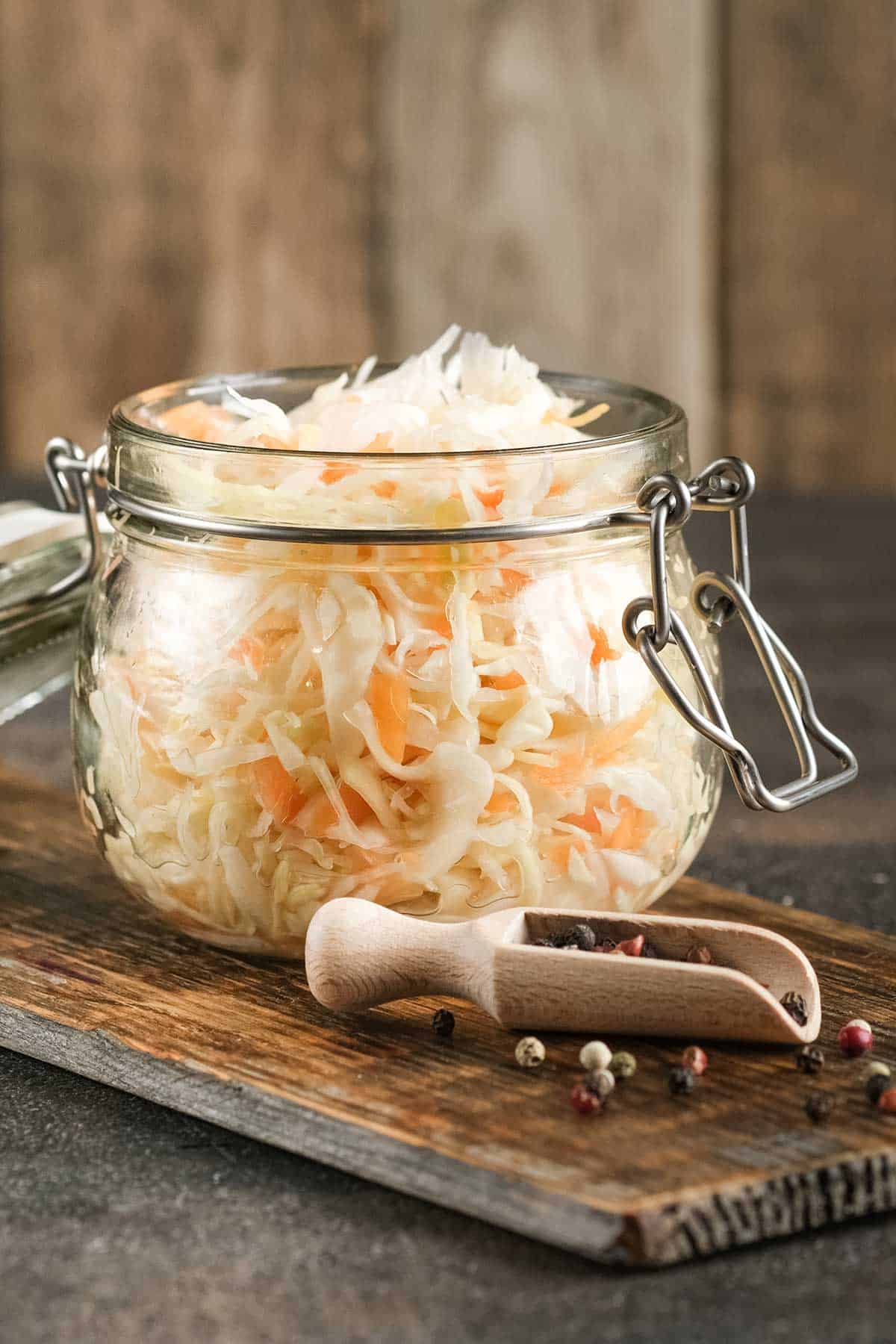
Sauerkrauts that are NOT Full of Probiotics
There are some sauerkrauts that are shelf-stable or even sold in the refrigerated section that have been pasturized and therefore have been stripped of the abundance of probiotics.
1.) Bubbies All Natural, Classic Sauerkraut With Live Cultures
You have probably seen Bubbies sauerkraut and assumed since it was refrigerated that it’s a good choice. Unfortunately Bubbies goes through a heat treatment process that kills off most of the good bacteria. The company claims that it’s neither raw nor pasteurized.
2.) 365 by Whole Foods Market, Sauerkraut Organic
This organic sauerkraut is pasteurized, so it does not have live probiotics.
3.) Eden Organic Sauerkraut
This organic sauerkraut is pasteurized, so it does not have live probiotics.
Other Fermented Probiotic Foods
- kefir
- kombucha
- kimchi
- kvass
- pickles
- yogurt
- raw-milk cheese
- miso
- coconut aminos
- pickled vegetables
- tempeh (fermented soybeans)
You Might Also Enjoy: Health Benefits of Aquamin: Proven Natural Gut Health Aid
Frequently Asked Questions About Sauerkraut
If you are thinking about what type of sauerkraut is best to buy or the most beneficial way to consume it, then our FAQ might prove helpful.
What Are Some Good things to Add to Homemade Sauerkraut?
Some great additions to fermented cabbages are: ginger, juniper berries, cumin and coriander seeds, caraway seeds, dill, carrots, radishes, and beets.
Does Canned Sauerkraut Have Probiotics?
Canned sauerkraut is lacking in the live cultures due to the pasteurization and canning process. When the cans are heated during the canning process it kills beneficual bacteria. So, look for glass jars instead.
Does Cooking Sauerkraut Kill the Probiotics?
Eating raw sauerkraut is the only way to preserve the health benefits. Heating the sauerkraut before eating it will ruin all the live probiotics because heat kills the good bacteria.
Does Rinsing Sauerkraut Reduce Probiotics?
Rinsing sauerkraut washes away much of the live cultures and probiotics. While some may be left, you greatly reduce the health benefits of sauerkraut by rinsing it.
Are there any side effects of eating sauerkraut?
When you first start eating fermented foods, it’s important to start off slowly. If you eat too much sauerkraut (or other fermented foods) you may become gassy and bloated and could get diarrhea or loost stools.
In Conclusion
Sauerkraut is definitly an acquired taste. I personally love the sour taste and crunch and can eat it cold and raw. Sauerkraut is great on hot dogs, reuben sandwiches, or served with kielbasa (or eaten alone).
I like to heat up my kielbasa (I use the brand Kiolbassa for the whole-food ingredients) and then add my own sauerkraut to it in the bowl. The heat from the Kiolbassa warms my sauerkraut just enough to make it not cold, while preserving the live cultures.

